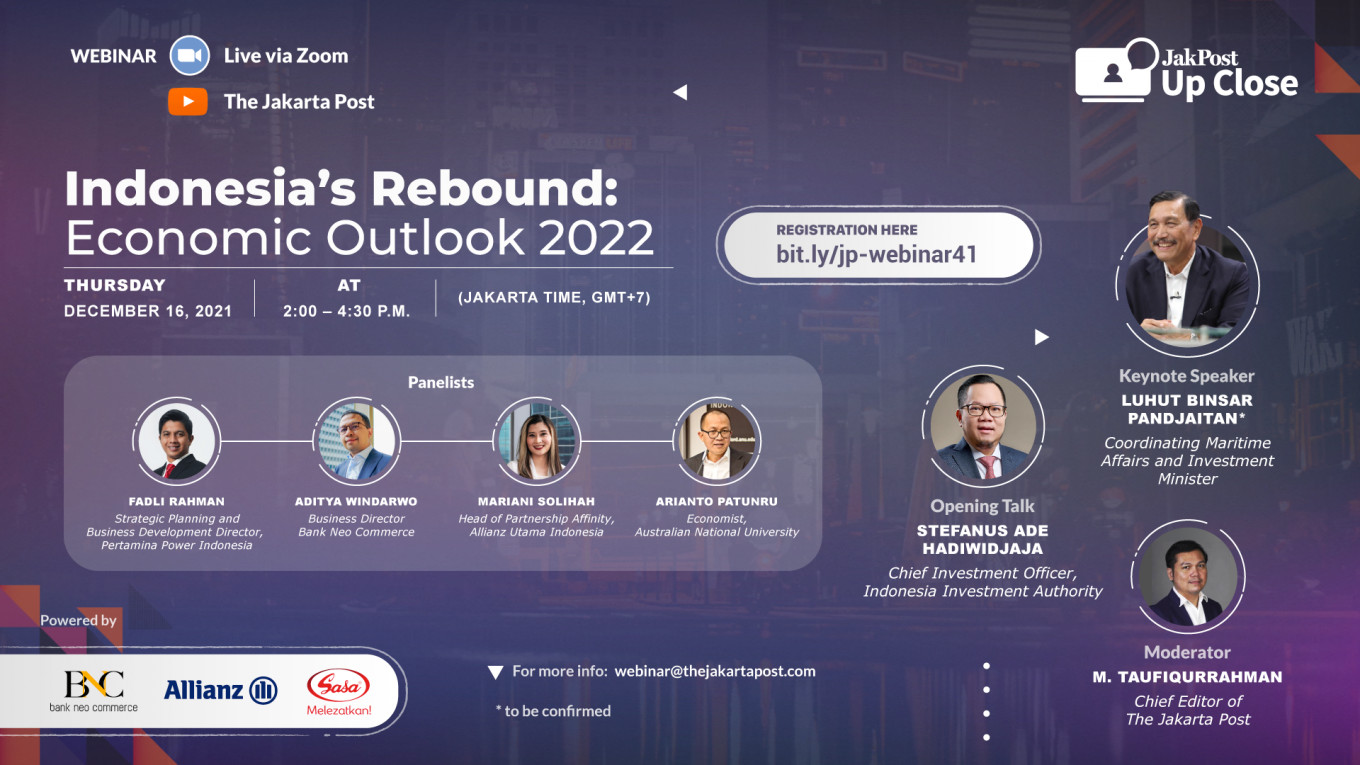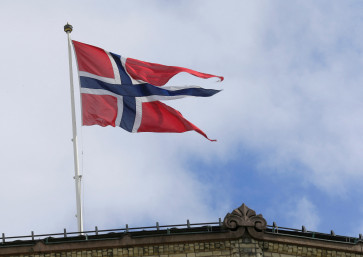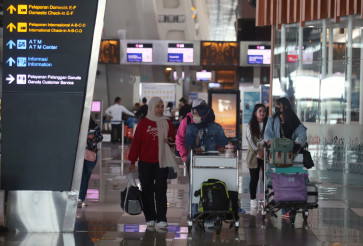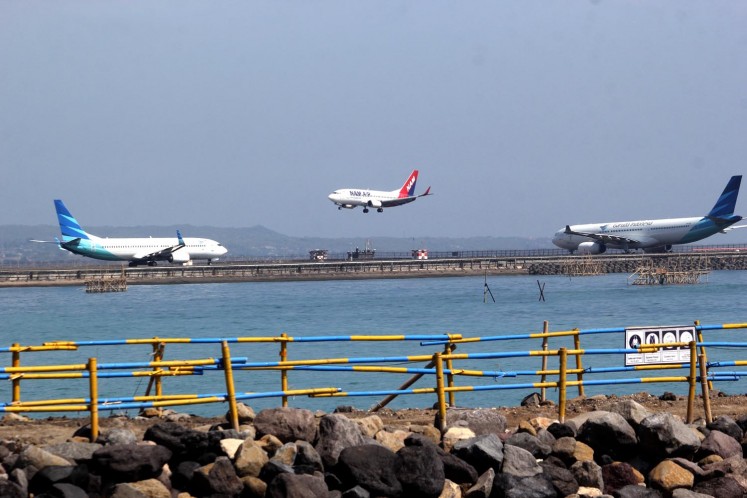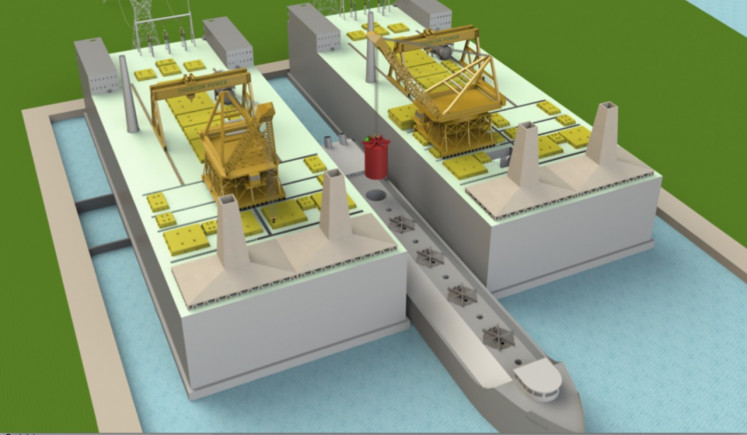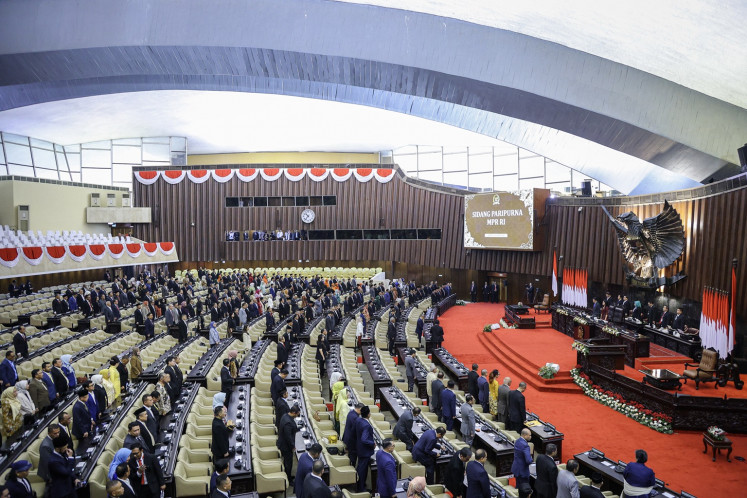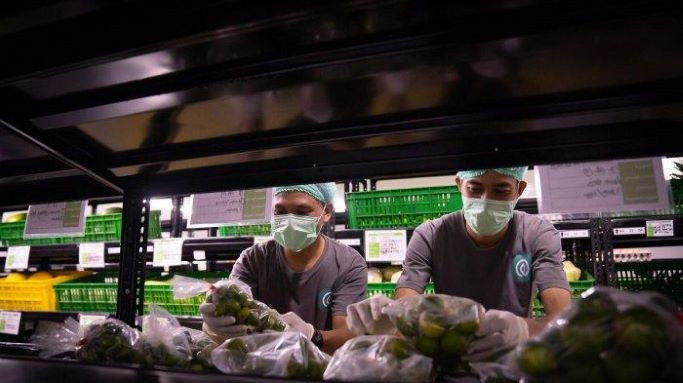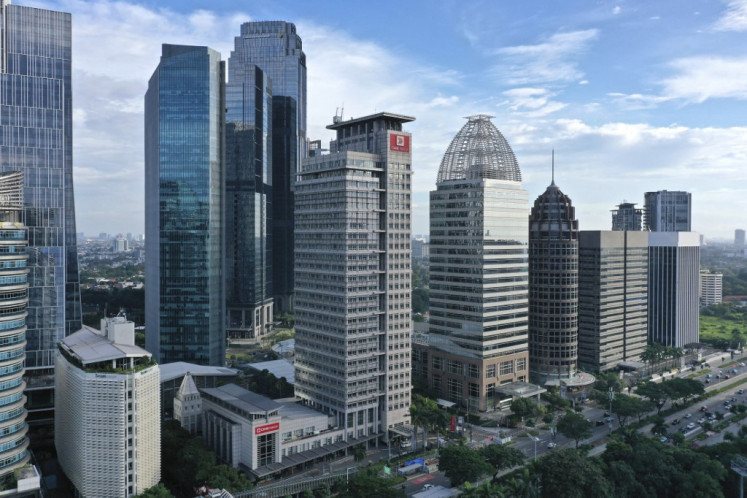Popular Reads
Top Results
Can't find what you're looking for?
View all search resultsPopular Reads
Top Results
Can't find what you're looking for?
View all search resultsGovt prepares for lasting pandemic, global uncertainty
Change text size
Gift Premium Articles
to Anyone
W
ith the emergence of new coronavirus variants prolonging the pandemic, the government is gearing up to face growing uncertainty with structural reforms aimed at strengthening the country’s economic resilience.
Coordinating Maritime Affairs and Investment Minister Luhut Pandjaitan said Indonesia was confronted with at least two sources of uncertainty, namely mutations of the virus as seen in the Omicron variant as well as a changing global economy currently marked by a shift toward green development.
“As with COVID-19, we cannot evade uncertainty. We can only prepare the Indonesian economy to withstand the pressure from these various shocks,” Luhut told the audience during a webinar titled “Jakpost Up Close #41: Indonesia’s Rebound: Economic Outlook 2022”.
The minister said the government had attracted many countries from around the world to invest in Indonesia’s health care as the country understood the need for reforms in the sector after the Delta variant had put significant strain on the healthcare system.
To reform the wider economy, Indonesia was moving toward downstream industrialization to reduce the country’s dependence on the export of raw materials such as nickel ore, which was now processed into stainless steel and would soon be used in electric vehicle (EV) batteries, Luhut said.
The government had begun to encourage industries to produce their goods with low carbon emissions, Luhut said, citing as a case in point the construction of the Tanah Kuning Industrial Estate in North Kalimantan, which would source its power from nearby hydropower plants.
Read also: Omicron variant casts shadow over Indonesia's economic recovery
Stefanus Ade Hadiwidjaja, chief investment officer at Indonesia Investment Authority (INA), Indonesia’s recently launched sovereign wealth fund, said on Thursday that INA was looking to get involved in healthcare infrastructure to ensure Indonesian people had access to quality health care, including in the field of pharmaceutical manufacturing.
INA is also keen to play a role in Indonesia's logistics sector, where it sees lots of business potential in cargo and seaports, Stefanus said, adding that another sector to focus on was internet infrastructure as a necessary step to bolster Indonesia’s digital economy.
However, INA said it had no concrete plans so far to enter the EV industry, arguing there had been a lot of investment already.
“It's on the list, but we're still thinking about how we might play in this space,” Stefanus said.
Arianto Patunru, an economist from Australian National University, said on Thursday that the world, including Indonesia, expected to soon begin what he referred to as “endemicization”, even though the emergence of the Omicron variant had pushed that back. Therefore, any effort to recalibrate the economy was relevant in preparation for a different future.
Businesses were pursuing a similar path as they adjusted products to changing customer demand during the pandemic.
Mariani Solihah, head of partnership affinity at PT Allianz Utama Indonesia, said on Thursday that the insurance company had started to shift its attention to travel insurance, demand for which had been growing with many countries opening their borders for tourists, albeit with additional safety measures.
Mariani said many countries required visitors to have insurance up to a particular amount to cover their medical expenses abroad. Other trends included coverage for particular risks like being confirmed positive for COVID-19, which would leave people unable to fly, as well as a sudden need to return home due to a family member being confirmed COVID-19 positive.
The company estimates the value of travel insurance would reach US$33.7 billion by 2027.
“We understand that travel during the pandemic requires more protection for the risk of being exposed to COVID-19,” Mariani said.
Read also: BREAKING: Indonesia reports first case of Omicron variant
Aditya Widarwo, business director at Bank Neo Commerce, said on Thursday that the lender was moving forward to embrace a trend of people – especially among the millennial generation – seeking online solutions for financial services like opening an account or making a deposit.
The bank also plans to make its services accessible through an online app and offer more services than a conventional bank would, such as providing lifestyle, education and healthcare services, in the technological ecosystem.
“The world has changed, and the pandemic has changed people’s behavior in how they conduct financial transactions,” Aditya said.
Dicky Septriadi, corporate secretary at PT Pertamina Power Indonesia, said the company was actively improving its new and renewable energy (NRE) portfolio in response to challenges fossil-fuel-based companies face as they shift to greener energy.
The company had allocated more than $8 billion in gas and NRE industries, equivalent to 9 percent of its total capital expenditure, between 2020 and 2024.
It plans to increase NRE in Pertamina’s energy mix from just 1 percent in 2019 to 17 percent by 2030, while also improving the gas portion from 3 percent to 19 percent over the same period.

